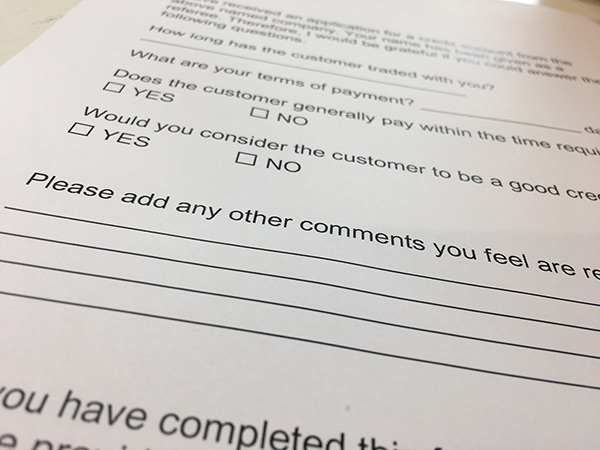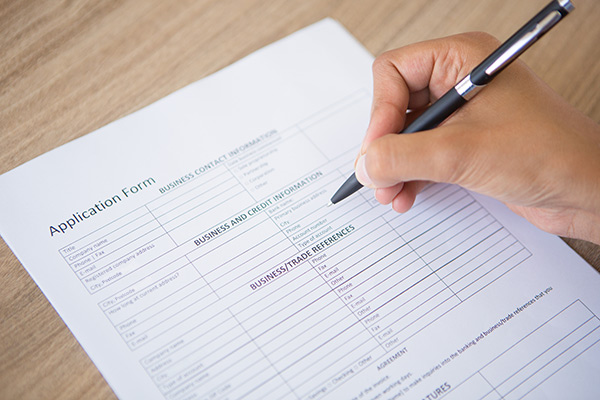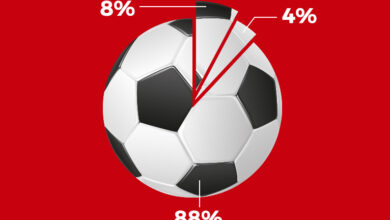What are trade references and why do I need them?
Trade references can help small businesses get trade credit from suppliers so they can buy materials now and pay later.
Some business-to-business companies have the option of buying now and paying later. To do this, they need to see one or more trade references vouching for your creditworthiness.

It’s a service that’s offered by many businesses selling building and decorating materials, so for tradespeople it can be invaluable. You can stay working while you’re completing jobs, or waiting for money to come through from work you’ve finished.
What is trade credit?
Trade credit is used to give tradespeople immediate access to tools and materials on credit. Before you can get trade credit, you agree the credit limit and number of days until repayment must be made. Repayment terms vary, but on average repayment is usually required within 30 days.
Advantages of trade credit
Trade credit is an extremely useful form of short-term finance that can be particularly useful for new businesses.
Whilst many start-ups may struggle to meet the requirements necessary to win a loan from a bank or an investor, trade credit is usually relatively easy to get, and has the added benefit of no extra costs or interest.
Trade credit means you’re not dependent on payments from previous jobs before you can crack on with the next one. For small businesses, cashflow is crucial, so trade credit takes this pressure off.
Most businesses that use trade credit often have more work than they would otherwise, as they’re able to take on more of the opportunities that come their way.
What are trade references?
When you first contact a new supplier about a trade credit account, they may ask you to supply them with the contact details for one or more trade references.
Trade references allow the supplier to check your creditworthiness and find out if you’re a reliable customer before they offer you credit.
When applying for trade credit you’ll usually have to give the contact details for your trade references for the company to then follow up. Your referees will then be sent a written reference request asking questions about their experience working with you.

Common questions that are asked in a trade reference request include:
- Whether you’ve ever made a late payment.
- How long the business has been working with you.
- What credit limit you have with them.
- Whether they would recommend you for credit.
- Any further relevant information.
Who needs trade references and why?
If you want to open a trade account with another business, you’ll benefit from having a few solid trade references under your belt.
Without trade references, suppliers might not want to take the risk of giving you credit.
The better the references you’ve got, the better deals and terms you’re likely to get. If you can show that you’re reliable, suppliers will want to keep your business long term.
How to get a trade reference
New businesses
If you’re a brand new business you probably don’t have any trade references yet, so how can you get your foot in the door?
If you explain your situation then some companies may accept a reference from another source, for example your accountant or bank. However, what you’ll more commonly have to do as a new business is pay by cash rather than credit for the first few months. Pay cash promptly for a few months and you may then be granted a credit facility (and eventually your first trade reference!).
Established businesses
You need to get trade references from suppliers that you regularly do business with. As standard, companies won’t accept references from banks, insurance or utilities in place of a trade reference.
When applying for credit with a supplier, the application form will usually ask for the name and contact details of your trade references. Simply pass these on and the supplier will request the reference from them.

While it’s not necessary to let a company know that you’re going to put their details down as a trade reference, in some instances you may wish to do so. It’s completely down to you to decide depending on the type of relationship you have with the business.
When selecting a business to be your trade reference make sure that:
- You’ve not made any late payments to them.
- You‘ve been making regular payments to them for some time.
Applying for trade credit
The details required on credit applications varies from business to business, however some details that may be required to assess your creditworthiness and set up your trade account include:
- Basic company details, type and structure.
- Number of years trading.
- Annual revenue.
- Credit amount and terms being requested.
- Bank details.
- Contact details for trade references.
As a tradesperson, once you’ve got over that first hurdle and secured a couple of trade references you’ll find that trade credit is likely to be one of your most valuable sources of business funding.
If you’re a tradesperson setting up a new business, Rated People can help you get regular local job leads and with building your reputation. Find out how we can help you to get your new business off the ground by filling out our enquiry form and we’ll give you a call back.
Access 75,000 leads a month and build your reputation online.Enquire now





One Comment